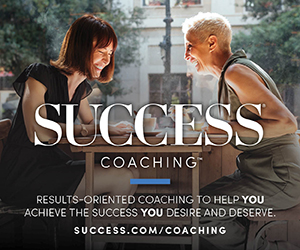For the past year I’ve been fascinated with creative work and the people who do it for a living. I think it all began with this quote from Ira Glass:
“Nobody tells people who are beginners—and I really wish somebody had told this to me—is that all of us who do creative work… we get into it because we have good taste. But it’s like there’s a gap, that for the first couple years that you’re making stuff, what you’re making isn’t so good, OK? It’s not that great. It’s really not that great. It’s trying to be good, it has ambition to be good, but it’s not quite that good…. A lot of people never get past that phase. A lot of people at that point, they quit.
“And the thing I would just like say to you with all my heart is that most everybody I know who does interesting creative work, they went through a phase of years where they had really good taste and they could tell what they were making wasn’t as good as they wanted it to be—they knew it fell short, it didn’t have the special thing that we wanted it to have.
“And the thing I would say to you is everybody goes through that. And for you to go through it, if you’re going through it right now, if you’re just getting out of that phase—you gotta know it’s totally normal.
“And the most important possible thing you can do is do a lot of work—do a huge volume of work…. Because it’s only by actually going through a volume of work that you are actually going to catch up and close that gap. And the work you’re making will be as good as your ambitions. It takes a while, it’s gonna take you a while—it’s normal to take a while. And you just have to fight your way through that, OK?”
My moment of failing to succeed
I became fascinated by this gap. In my own creative life, I felt ready to go through a volume of work. I did so with vigor. Hope. Joy, even.
And then I crashed—hard.
I realized why Glass said so many people never get past this phase. It isn’t because they’re weak. It’s because this phase, I’ve decided, is brutal. No one in their right mind would go past this phase of failing in order to succeed.
Trying to close this gap has broken my heart over and over again—and the worst part is that I can’t even feel sorry for myself because I am doing this to myself. What is wrong with me?
I’ve actually tried to stop at this phase. I’ve tried to give up. I can show you my journals to prove it. Every bone in my body wants to stop almost every day. It’s painful to put yourself and your work out there when you aren’t sure where any of it’s going—or worse, when you feel just plain invisible.
Glass’ quote rings in my ear and I keep working, keep believing that maybe one day I will close the gap.
But in the space between all the inspiration and confidence, the feelings of invisibility return. I marvel at how a sense of feeling ignored so quickly translates to a sense of being talentless. Worthless. I wonder if my work will never live up to my ambitions. Maybe the truth is really this: I am not good enough. Or rather: I will never be good enough.
An unexpected turn of events
When I’m feeling this way, I usually try to douse myself in things that inspire me. At the suggestion of a friend, one that was provided last summer during a particularly painful bout of self-doubt, I decide to attend the Disney Expo. It’s a fan convention that is held every two years, at which they premiere movie trailers and feature surprise guests.
I immerse myself in the conference, waiting in lines for hours, trying to make my way through piles of Disney, Star Wars and Marvel fans. On the first morning, I wait in the hot Los Angeles sun for hours before going inside (and I am the least of the committed; many people camp out the night before—though doing so was not permitted during the 2022 expo). It’s intense. It’s wonderful.
On the last day, though, I am exhausted. I take it a little slower, roam around the main expo area and even sing “Do You Want to Build a Snowman?” at the karaoke station. By lunchtime, the jet lag and the lines catch up with me; I plan on going back to my hotel instead of waiting in line for another session—maybe I’ll enjoy a quiet lunch in my room.
But just as I’m walking away from my moment on the karaoke stage, I overhear a woman saying that Josh Gad is going to be at the Frozen session that afternoon. I hadn’t even considered attending because I thought there was no way I would be able to get in. But Gad?
Gad has been a fascination of mine for the past few years—he’s involved in so many things I love. Frozen, yes, but also the live-action Beauty and the Beast and his TV show The Comedians. There’s something about him that I just like. And when I look at his IMDb profile, I can’t help but see a person who understands what it means to go through a volume of work—of canceled shows and movies no one has heard of—to get to a place where your work matches your ambitions. I’m fascinated by him and want to know more.
Looking for inspiration when failing to succeed
Instead of going back to my room, I decide to line up for this session… three hours early. It’s going to be in the largest room in the convention center, the one where they show the movie trailer premieres, and I know I want to be close. I don’t want to see Gad from the back row as a picture on the large screen. I want to feel like we’re in the same room.
So, I follow the signs to get in and am literally routed underground the Anaheim Convention Center to a large warehouse-like waiting area. I’m the 20th fan in line. I feel silly, to be honest. Here I am, by myself at this convention, waiting underground. What am I doing? I feel weird. I feel strange.
Somewhere deep down, I know I’m looking for inspiration to get past my failings to succeed. I know I am hoping maybe something these creative people say will help me move forward and continue this volume of work.
I settle in on the cold garage-like floor next to the other dedicated convention-goers. Making a pillow out of my purse and a blanket out of my sweater, I lie down and close my eyes.
Three hours later, the line has grown behind me. We’re all awoken from our mini underground camp stupor and ushered upstairs to the convention hall, seated a dozen rows from the stage. We come alive again. We’re ready. We wonder who is going to show up. Gad? Kristen Bell?
The session itself is about the music of Frozen, and the Oscar-winning songwriting duo is going to be leading it. We’re excited about that too, but we have no idea what’s about to happen. We have no idea how they’re going to blow us all away.
Sometimes, you need to fail in order to succeed
Gad and Bell show up. And they are as delightful as we all imagined.
But it’s the songwriters—Kristen Anderson-Lopez and Robert Lopez—who change us, who knock our socks off, who teach us about creativity without trying to teach us anything at all.
They do something brave, something rare, something not a lot of artists are willing to do: They talk about and play the songs that didn’t make the film. They talk about failing in order to succeed.
Creating in abundance
As they talk, I remember this YouTube interview I watched of Taylor Swift once, where she said this about her writing process: “I’ll write like 40-50 songs, and then 13 or 14 make it. That’s a lot of paring it down and making sure you’re getting to the best stuff… so for me it takes a while.” She was talking about the two years it can take to make an album, and I think of her as I listen to Kristen and Bobby talk about the years it took to make Frozen, the days they walked around New York City instead of writing—stuck, blocked. They tell us about the phone meetings across the country—them in New York and the directors in LA telling them that a song wasn’t working, that it was going to get cut.
I can feel something behind their eyes as they speak, behind their honesty. It’s so clear to me that there were times when writing these songs was painful, when hearing people say a song wasn’t going to work was gut-wrenching. The paring down. The editing.
Feeling the pain of editing
The editing is necessary—so says everything I’ve ever read about creative work and everyone I’ve ever talked to about creativity. And I believe that. But I feel like I don’t hear enough about how painful that can really be. I can only guess that it’s either because:
- I’m doing it all wrong, which is why I’m experiencing this pain.
- Once you’ve been through it, it’s kind of hard to talk about, or you don’t even want to go back there because it was so terrible and you’d rather just focus on and talk about the good parts.
- They fear doing it all wrong, too.
Embrace failing so you can succeed
And here on stage, right in front of me, these Oscar-winning songwriters seem to be saying that yes, it can be painful. They tell us, in so many words, “See, we’ve failed, too!” They tell me: “Even we still have to create a volume of work to get to the good stuff. Keep going, Isa! Don’t give up!” They don’t say this exactly, but it’s what I hear.
And those songs that didn’t make the film? I hear glimpses of the final songs wrapped in the scrapped notes. In those songs, I hear songwriters becoming Oscar winners.
Not everything that artists create is perfect, Oscar-winning or even usable. Even geniuses have days where they have to throw everything they’ve done in the trash and start all over again. To fail to succeed. I’ve come to think it isn’t the absence of “trash can days” that make a good artist, but the bravery to engage again and again with the trash.
And that’s hard.
But it can also lead to songs like “Let it Go” (when Idina Menzel came out to sing it with Swift in Tampa, Florida, I screamed in a way I never have before and maybe never will again)—a song that the second-graders at the Boys & Girls Club sang to me every day one summer, calling me Elsa instead of Isa. I sang right along with them every time, and hoped beyond hope that the words would sink in, that they would find the strength and support needed “to test the limits and break through.”
This article was published in April 2016 and has been updated. Photo by GaudiLab/Shutterstock



